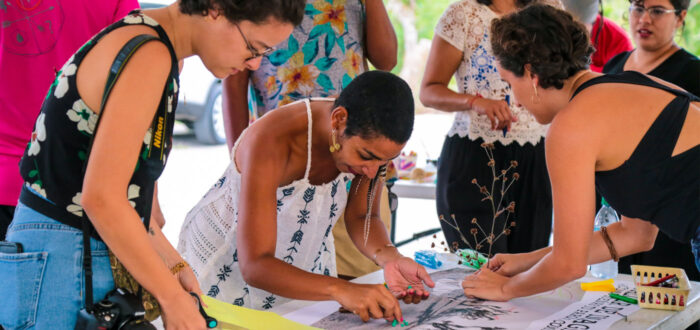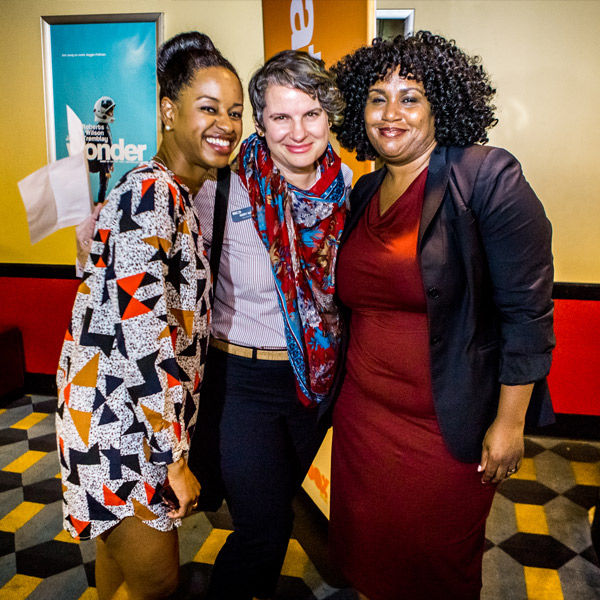
The Solutions Project presents #WomensClimateWeek 2021
Through #WomensClimateWeek, The Solutions Project is shining a spotlight on women leading transformative change in the climate movement, from running inclusive and collaborative campaigns to mentoring young people. This week celebrates the legacy and dynamism of women, present and past, who have all too often been ignored and pushed aside simply because of their gender.
The inaugural Women’s Climate Week will celebrate female solutionaries including Elizabeth Yeampierre, Winona LaDuke, Miya Yoshitani, and more!
Ninety-five percent of U.S. philanthropy dollars goes to organizations led by men, and white men in particular. In response, The Solutions Project instituted a 100% Commitment to Justice to devote at least 95% of its grantmaking resources to organizations led by people of color, with at least 80% going to organizations led by women.

Women are more vulnerable to the effects of climate change because of social, economic and cultural forces, including systemic sexism. The UN says 70% of the 1.3 billion people living in conditions of poverty are women.
In urban areas, 40 percent of the poorest households are headed by women. Women predominate in the world’s food production (50-80 per cent), but they own less than 10 per cent of the land.
Women represent a high percentage of poor communities that are highly dependent on local natural resources for their livelihood, particularly in rural areas where they shoulder the major responsibility for household water supply and energy for cooking and heating, as well as for food security. In the Near East, women contribute up to 50 per cent of the agricultural workforce.
During extreme weather such as droughts and floods, women tend to work more to secure household livelihoods. This will leave less time for women to access training and education, develop skills or earn income. In Africa, female illiteracy rates were over 55 per cent in 2000, compared to 41 per cent for men. When coupled with inaccessibility to resources and decision-making processes, limited mobility places women where they are disproportionately affected by climate change.